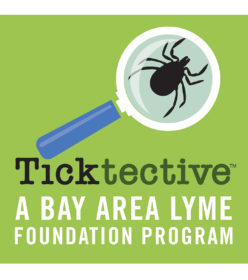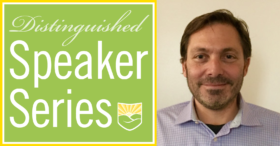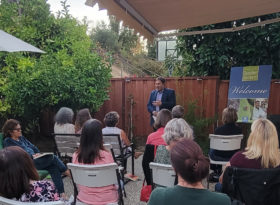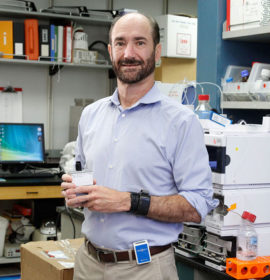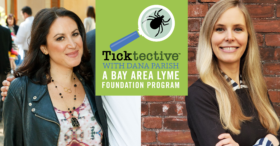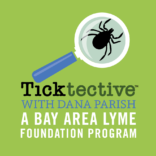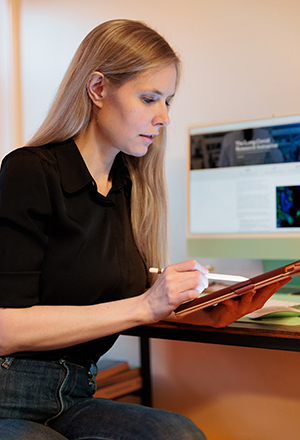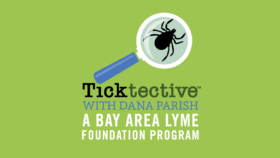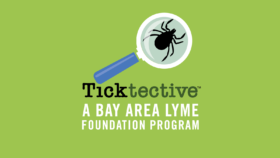By Bay Area Lyme Foundation Ticktective Podcast Transcript
In this podcast episode, host Lia Gaertner interviews Chris Kresser, a renowned expert in functional medicine and ancestral health. Kresser shares his personal health journey, which involved struggling with chronic illness and eventually finding his way to functional medicine. He discusses the importance of zooming in and zooming out in managing chronic illness, as well as the broader definition of health as human flourishing. Kresser also talks about his approach to diet, which involves giving himself permission to eat a variety of foods while prioritizing those that make him feel good. He emphasizes the importance of the ecosystem in managing chronic illness, focusing on factors such as gut health, lifestyle, stress management, and finding joy and fulfillment in life. Kresser concludes by offering advice to individuals with Lyme disease and chronic illness, highlighting the significance of addressing the entire ecosystem rather than solely focusing on the pathogen.
Lia Gaertner: Welcome to the Ticktective podcast and video series, a program of the Bay Area Lyme Foundation, where our mission is to make Lyme disease easy to diagnose and simple to cure. I’m your host, Lia Gaertner, director of Education and outreach. Lyme disease is the most common vector-borne disease in the USA and is a global issue. This show includes interviews with the researchers we fund, as well as other interesting people in the Lyme scientific community. We are a nonprofit foundation based in Silicon Valley. Thanks to a generous grant that covers all of our overhead, 100% of all donations go directly to support, research and prevention programs. You can find out more or donate@bayarealyme.org.
Lia Gaertner: Thank you, Chris Kresser, for joining me on the Ticktective™ video and podcast series.
Chris Kresser: Thanks for having me, Lia. It’s a pleasure.
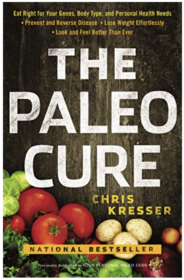 Lia Gaertner: Chris Kresser is a renowned expert leading clinician and top educator in the fields of functional medicine and ancestral health. He is the author of the New York Times bestselling book, The Paleo Cure, as well as the book Unconventional Medicine. Chris is the co-founder and educational director of the California Center for Functional Medicine and the founder of the Kresser Institute. Chris regularly shares his evidence-based insights from trusted sources and world-renowned health practitioners and coaches through his blogs, webcast interviews, and his own podcast, Revolution Health Radio. So, Chris, during your decade-long struggle with chronic illness, you learned firsthand where healthcare mattered most and where it came up short. After seeking the help of more than 30 healthcare practitioners and ultimately having to learn and implement behavior changes on your own with limited support, you emerged with your health and a vision and drive for changing and improving the practice and education of functional medicine. Can you please tell us about your health journey?
Lia Gaertner: Chris Kresser is a renowned expert leading clinician and top educator in the fields of functional medicine and ancestral health. He is the author of the New York Times bestselling book, The Paleo Cure, as well as the book Unconventional Medicine. Chris is the co-founder and educational director of the California Center for Functional Medicine and the founder of the Kresser Institute. Chris regularly shares his evidence-based insights from trusted sources and world-renowned health practitioners and coaches through his blogs, webcast interviews, and his own podcast, Revolution Health Radio. So, Chris, during your decade-long struggle with chronic illness, you learned firsthand where healthcare mattered most and where it came up short. After seeking the help of more than 30 healthcare practitioners and ultimately having to learn and implement behavior changes on your own with limited support, you emerged with your health and a vision and drive for changing and improving the practice and education of functional medicine. Can you please tell us about your health journey?
Chris Kresser: I’ll be brief because it was long and arduous, but I took off to travel around the world for a couple of years in my early twenties, and I was doing a lot of surfing. I was in a little village on Sumbawa, which is an island in Indonesia, and a bunch of the people there who were surfing at that break got exposed to a waterborne pathogen, actually several pathogens. There was a stagnant pool of water near the river mouth there, and locals dug a trench to drain that pool into the river mouth. And all of that water where cows had been defecating went out into the surf break, which are often located right at the river mouth. And unbeknownst to a lot of us who were there surfing, we were exposed to it and I would say 70-80% of the people there got quite sick.
I took some antibiotics that I had in my medical kit and the acute phase of it passed relatively quickly. But as I continued to travel after that, I went to the Maldives and was there for a few months and I was in South Africa and Reunion Island, Mauritius, and Madagascar. After about six, seven months, I started feeling really sick and it became clear to me that it wasn’t something that was just temporary that was going to go away. So, I made my way back to Australia and that was where I started to seek medical care. And then when I didn’t make much progress, I decided to go back home to the US and although most of the doctors and other practitioners I saw meant very well and did their best to help me, it was pretty clear that the medical system was not set up to deal with those kinds of problems.

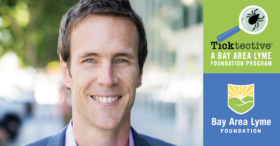
 Lia Gaertner:
Lia Gaertner: 